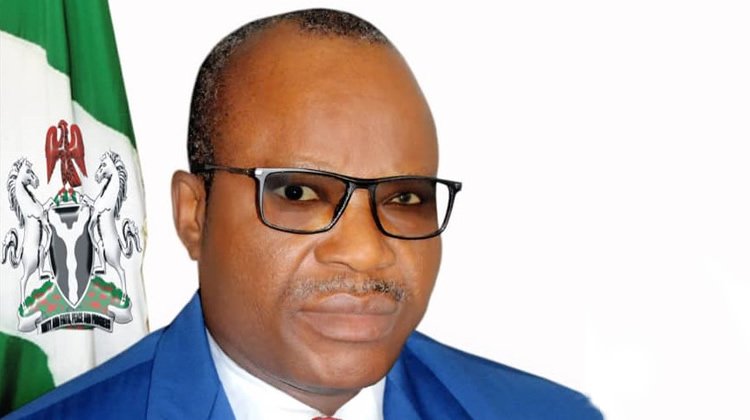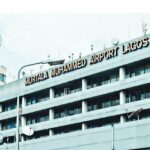
The House of Representatives’ Committee on Public Accounts has commenced investigation of extra-budgetary spending by Nigeria’s foreign missions and their refusal to remit Internally Generated Revenue despite cries of paucity of funds by the embassies and high commissions.
The Office of the Auditor General for the Federation, in its report presented to the National Assembly, alleged various financial infractions by the missions between 2010 and 2019.
The office decried that efforts to audit the accounts of some of the missions were frustrated by the officials who acted on a directive by the Permanent Secretary of Ministry of Foreign Affairs.
The Auditor-General, in the over 450-page document containing a list of audit queries against the missions, raised the alarm over their habit of making spending outside their budgets and without the approval of the National Assembly.
The Auditor-General said, “The practice where Nigerian Missions over expended their allocations with impunity should be frowned at. It should be noted that this action is a contravention of Financial Regulation which stipulates that no expenditure on any subhead of the recurrent estimates in excess of the provision in the approved estimates or supplementary estimates may be authorised by any officer controlling a vote without the prior approval of the National Assembly.
“I am deeply worried at the non-adherence to budgetary provisions by most Missions. It is important to note that this act contravenes the provision of extant regulations which stipulates that no expenditure on any subhead of the recurrent estimates in excess of the provision in the approved estimates or supplementary estimates may be authorised by any officer controlling a vote without the prior approval of the National Assembly. It should also be noted that this practice makes nonsense of the appropriation.
“I have observed that most of the Nigerian Missions have formed the habit of over expending their allocations with impunity. This practice makes nonsense the essence of appropriation and should be frowned at.
“I have noted with dismay that most Nigerian Missions incur expenses on most of their expenditure sub-heads in excess of the provision in the approved estimates. It should be noted that this contravenes the provisions of Financial Regulation 313 (2009 Edition) which stipulates that no expenditure on any sub-head of the Recurrent estimates in excess of the provision in the approved estimates or supplementary estimates may be authorised by any officer controlling a vote without approval of the National Assembly.”
The report said while the landed property of the Nigerian Embassy in Brasilia were in a dilapidated condition without any effort to renovate them, the embassy had been spending $50,247.89 annually on rent for two of its officials, noting that amount spent on rent for three years could have been used to renovate the buildings and cut cost.
The report also said the embassy exchanged six old vehicles, whose prices were not made available, for two new ones purchased at a total cost of $95,211, while an additional $17,642.08 was spent on shipment, insurance and clearing of the new vehicles, even when there was no budgetary provision for the acquisition.
Another query alleged that in 2010, the then Nigerian Ambassador to Poland claimed over N9.777m annually for non-existing domestic staff. According to the report, even though the ambassador’s letter of deployment noted engagement of a cook/steward, a maid and gardener who should be engaged locally and enrolled on the payroll of the mission, they were never employed.
Another query alleged that in 2011, the Nigerian Ambassador to France spent over N1.75m on entertainment of guests without any record of the guests, haircuts, manicure, hair colouring and cost of ticket to Nigeria for consultation without any evidence of any official invitation/approval for the journey. The Auditor-General described these as “very private expenses that should not have been borne by public funds.”
The Auditor-General added that officials of the Nigeria Embassy in Paris were printing official receipts booklets for the collection of government revenue privately, contrary to Financial Regulations which stipulated that “under no circumstances shall temporary or privately printed receipts be utilised for the collection of government revenue.” According to the office, the practice encouraged fraudulent activities, making it difficult to track the receipts issued out and thus difficult to determine the actual revenue generated.
The office also said in another query that, “At the Embassy of Nigeria, Washington D.C., USA, properties owned by the Federal Government of Nigeria were sold and the proceeds of the sales used to open a ‘Property Account.’ A scrutiny of the bank statements of the main account revealed that several transfers of funds amounting to USD17,477,677.54 (N2,619,949,997.79) were made at different times between 28th August, 2009 and 26th April, 2012, from the ‘Property Account’ to the main account. Despite these huge transfers, the main account had only a meagre balance of the sum of USD769.49 (N115,348.58) as at 16th May, 2012.




